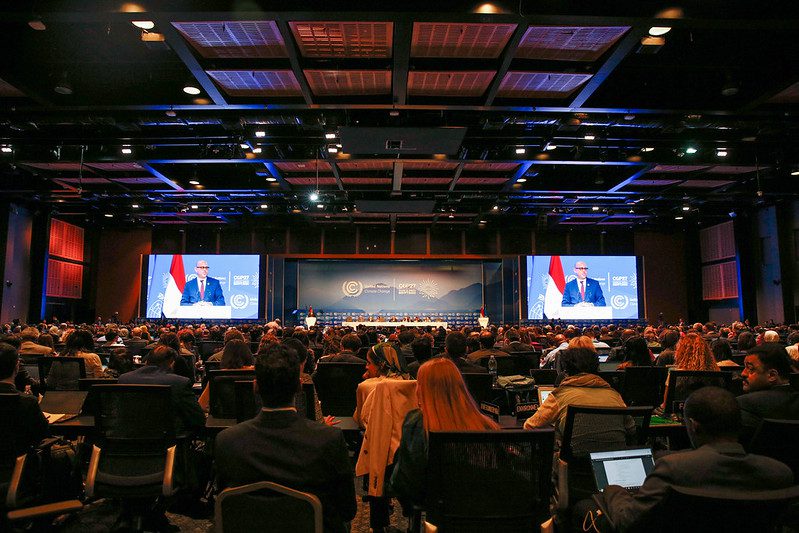World leaders are gathering in the Egyptian city of Sharm El Sheikh for COP27, this year’s installment of the annual United Nations (UN) climate summit that hopes to address our planet’s climate crisis.
Optimism is in short supply this year – even Greta Thunberg is bailing on the summit, accusing it of being a forum for “greenwashing”. Previous COP conferences have seen dilly-dallying and weak commitments, and it’s now evident that the dream of meeting the obligations set out by the Paris agreement is fading fast.
In 2015, countries signed the landmark Paris agreement whereby 196 parties committed to holding global temperature rises to “well below” 2°C (3.6°F) above pre-industrial levels, while “pursuing efforts” to limit heating to 1.5°C (2.7°F). Those goals were made legally binding and enshrined in the treaty.
However, a review of this objection in 2018 found that, in fact, the 2°C (3.6°F) target was not strict enough and could still lead to catastrophic, irreversible damage to our ecosystems. Environmental groups are hoping that COP27 could see world powers finally acknowledge that vital reassessment.
In a statement ahead of the summit, Greenpeace International said COP27 must “make it clear that limiting temperature rise to 1.5°C by 2100 is the only acceptable interpretation of the Paris Agreement and acknowledge the 1.5°C aligned global phase-out dates for the production and consumption of coal, gas, and oil.”

Delegates gather for the opening plenary of COP27 on November 6 2022. Image credit: UNclimatechange/Flickr (CC BY-NC-SA 2.0)
Either way, Earth is still way off target. The emphasis this year is action and implementation, not just words and pledges. However, as it currently stands, colossal measures are needed.
In 2021, the independent think tank Climate Action Tracker released a report that found just one country out of the 37 countries they analyzed – the West African nation Gambia – has actually undertaken climate actions that are consistent with the Paris Agreement goals.
Less than two weeks ago, the UN released a report ahead of COP27 that concluded there’s “no credible pathway to 1.5°C in place”. If current trends continue, they estimated that the world will see a temperature rise of between 2.4°C and 2.6°C (4.32°F and 4.68°F) by the end of this century unless more ambitious action is taken. Quite simply, that could be disastrous.
“It’s critical that governments significantly increase the level of their 2030 climate targets as soon as possible. Most countries – especially most of the G20 major emitters – failed to do so this year. They are not off the hook; limiting warming to 1.5°C depends on governments fulfilling this promise,” Tom Evans, Policy Advisor at E3G, said in a statement seen by IFLScience.
“It’s equally vital for governments to overachieve their current targets to keep 1.5°C alive. Governments are making progress on accelerating emissions reductions, but it’s far too slow. COP27 is the next moment governments and businesses come together to face these facts,” continues Evans.
“The Egyptian Presidency has said the focus of COP27 is implementation. To live up to this, the summit must see world leaders grasp this under-delivery and agree how to collectively step-up action,” he added.
All of this is just one element of the complex discussions that will unfold over the next couple of weeks. World powers also need to discuss ways we can prepare for the impacts of climate change it’s too late to prevent, the debate about compensation for less developed countries, and the financing of phasing out fossil fuels.
All in all, there’s a lot at stake and time is running out.
Source Link: COP27 Kicks Off With Planet Miles Away From Paris Agreement Goals